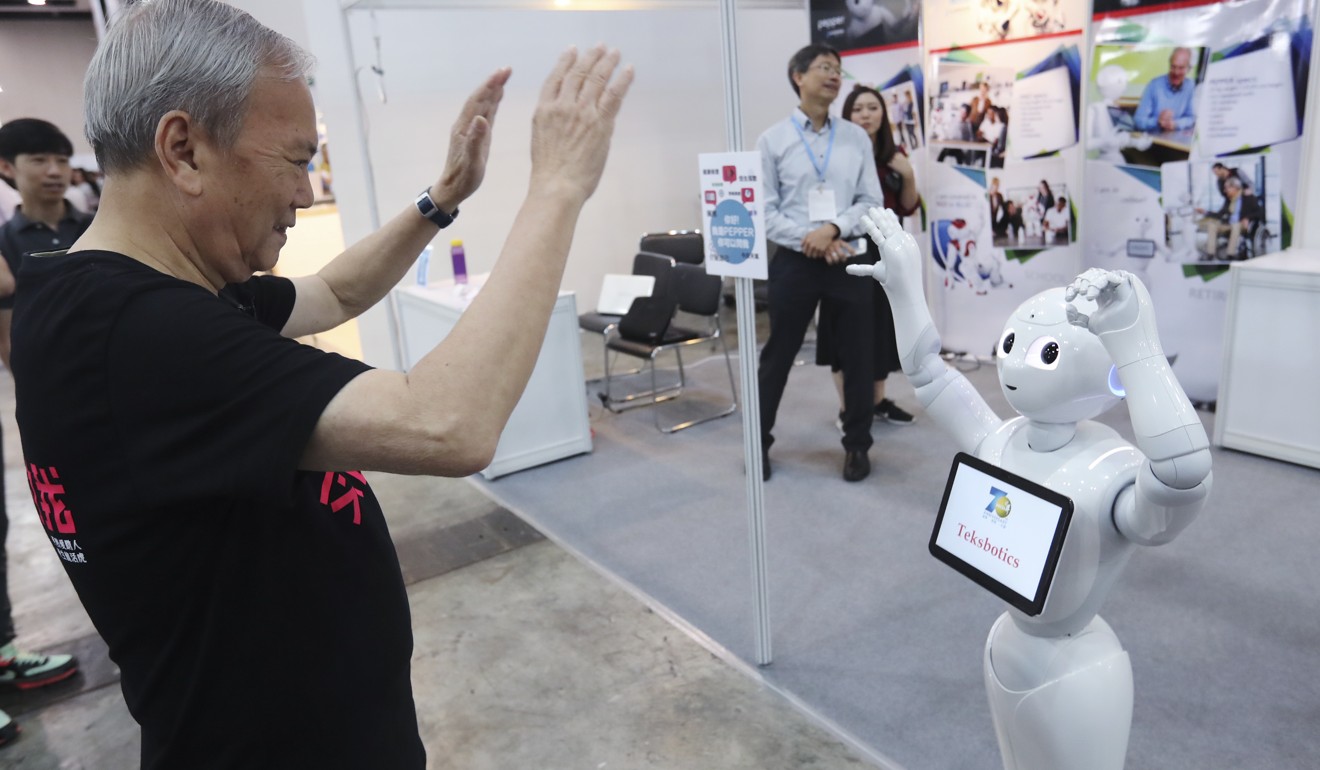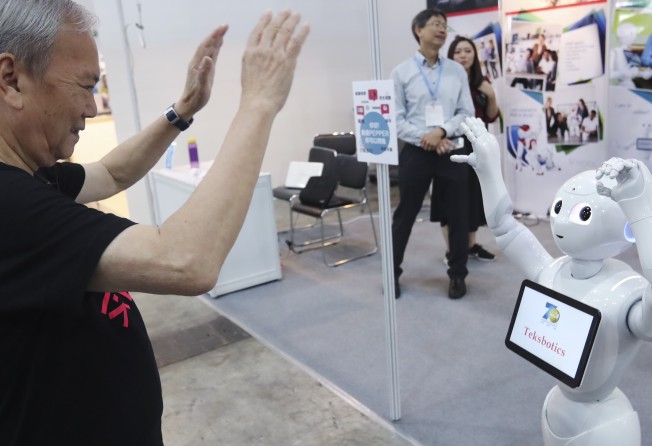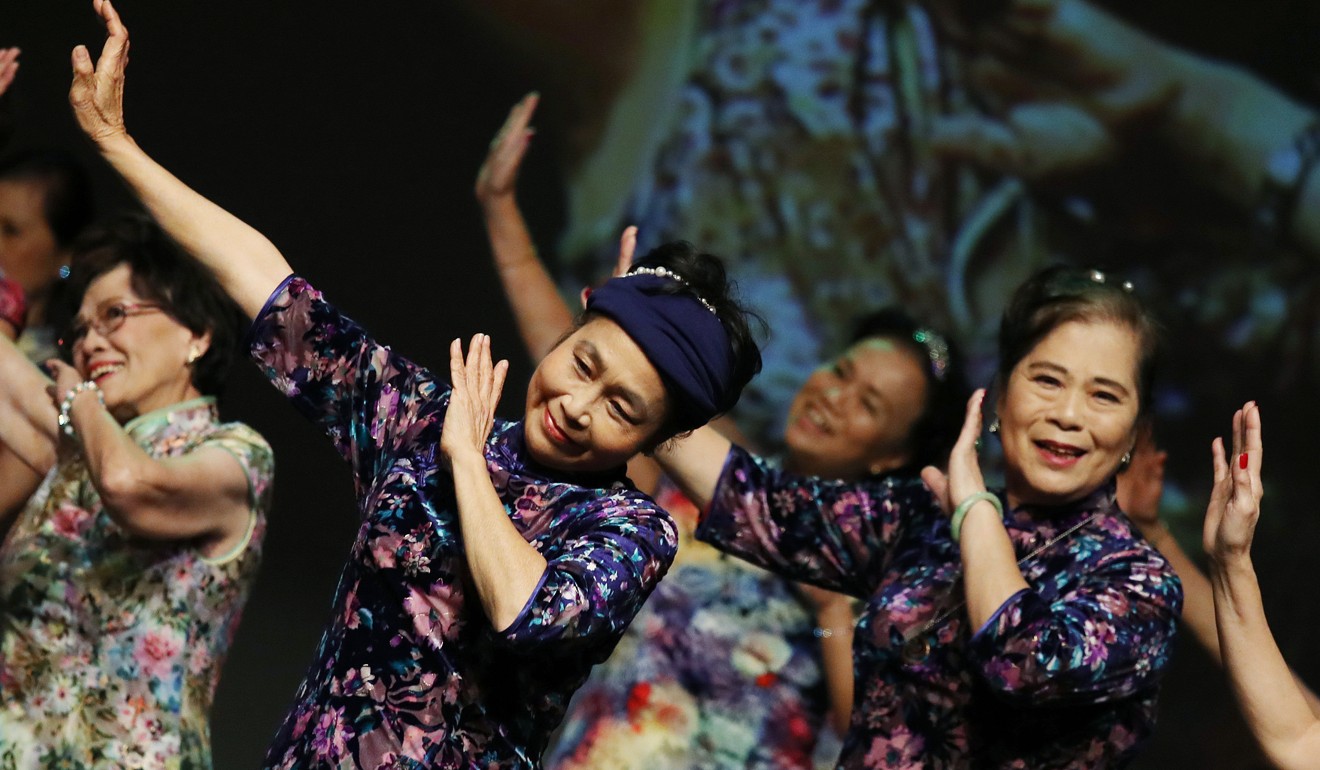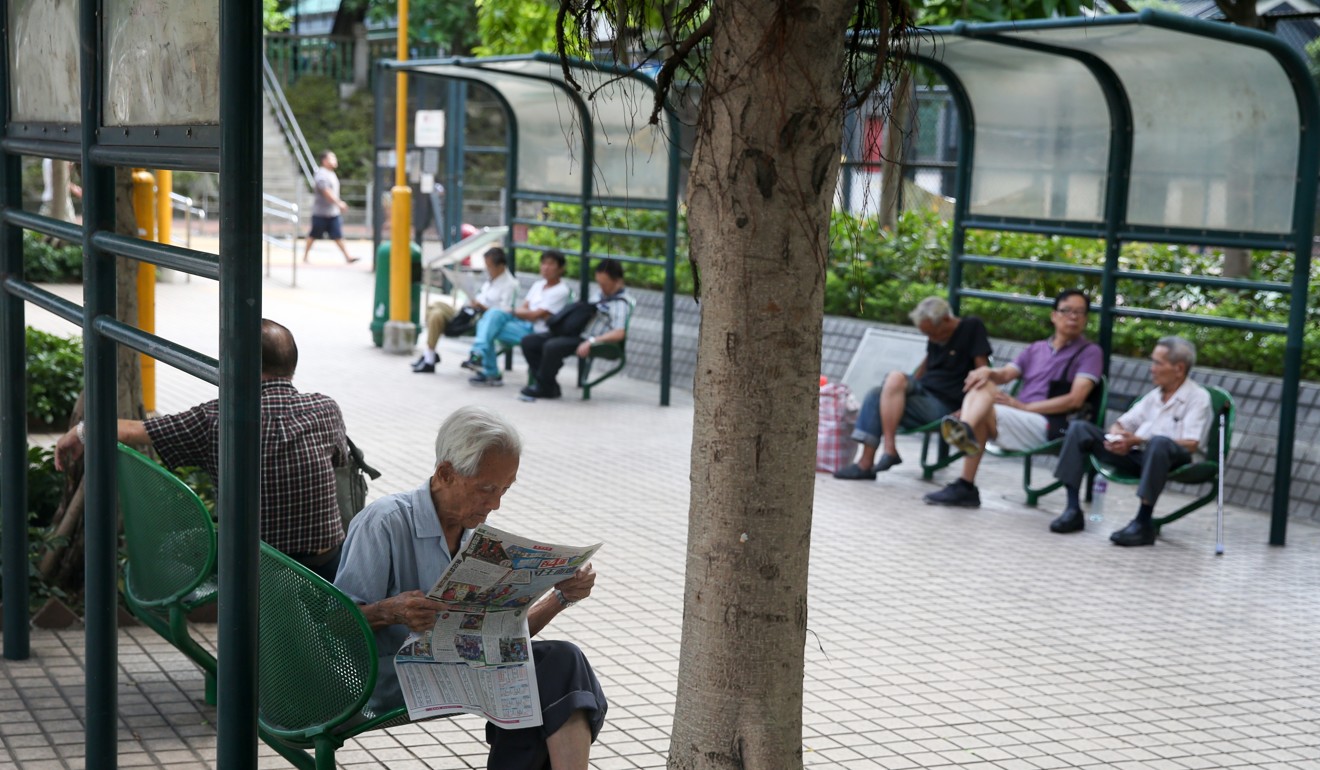
Robotics, fashion should lead Hong Kong’s undeveloped silver market for elderly, former public health care chief Edward Leong says
Dr Edward Leong says city has huge untapped potential in the silver market and should look towards products to encourage active ageing

From robotics for elderly care to fashion for those in their golden years, Hong Kong needs to grow its underdeveloped silver market to turn active ageing from a buzzword into reality, former public health care chief Dr Edward Leong Che-hung has said.
Leong, an ex-chairman of the Hospital Authority and the Elderly Commission, made the remarks during an interview about his new book, titled The Triumph of Rationality: From Surgical Practice to Public Service.
Local policymakers are bracing for a silver tsunami. By 2041, almost one in three people in Hong Kong will be aged 65 or above, up from just 16 per cent last year.
To encourage the use of technology in elderly care homes, the government has earmarked HK$1 billion (US$127 million) to subsidise the procurement of such products. The scheme will start in the fourth quarter of this year.
Leong, 79, a urologist, agreed this would be money well spent. Addressing critics who have questioned why the funds were not used to build more elderly care homes, he said there would never be enough, given the rapidly ageing population.

Instead, technology could ease the shortage of carers – 32,048 people were employed in the residential care service industry as of March this year, but there were still 2,884 vacancies.
“It’s very tiring to lift an old person up and down. There’s a possibility of getting injured. Why can’t we use machines to do the work?” said Leong, dubbed the “king of public service” for the many government roles he has held over the years.
The silver market [in Hong Kong] is all about selling diapers, wheelchairs and walking sticks. These are very negative
Kenneth Chan Chi-yuk, former chairman of the Elderly Services Association, said many elderly care homes offered HK$100 an hour but still could not recruit enough carers.
“Some elderly homes have beds to take in more residents but they can’t do so because they just don’t have enough staff,” he said.
Technology could make the jobs less physically demanding so Hongkongers might be more willing to join the industry, Chan said, adding that the homes under the association would apply for the government subsidy.
“These products are not popular at the moment because they’re expensive. But they are very common in Europe, the US and Japan,” he said.
Leong also called for Hong Kong’s silver market to keep up with the times.
“Senior citizens want nice clothes to go to special events. But they can’t wear leather shoes because they’re slippery. They have to wear plastic shoes but these look ugly when you’re in a suit. That’s [an opportunity for] the silver market and Hong Kong’s silver market is very behind the times.”

Research by an organiser of a fair for the elderly three years ago estimated that the industry was valued at about HK$50 billion. The figure was based on the company’s market research, which showed that Hongkongers over the age of 65 spent between HK$50,000 and HK$70,000 a year outside their daily needs and rent.

The sector is expected to grow with the increasing numbers of elderly people in Hong Kong.
“I have talked to fashion designers and asked why can’t they introduce an elderly line? They responded ‘who’s going to buy them? Which woman is willing to admit that they are old?’ They don’t realise that it is a big business because of the huge elderly population,” Leong said.
“The silver market [in Hong Kong] is all about selling diapers, wheelchairs and walking sticks. These are very negative, aren’t they? Can we think of something that actually improves the dignity of the elderly?”